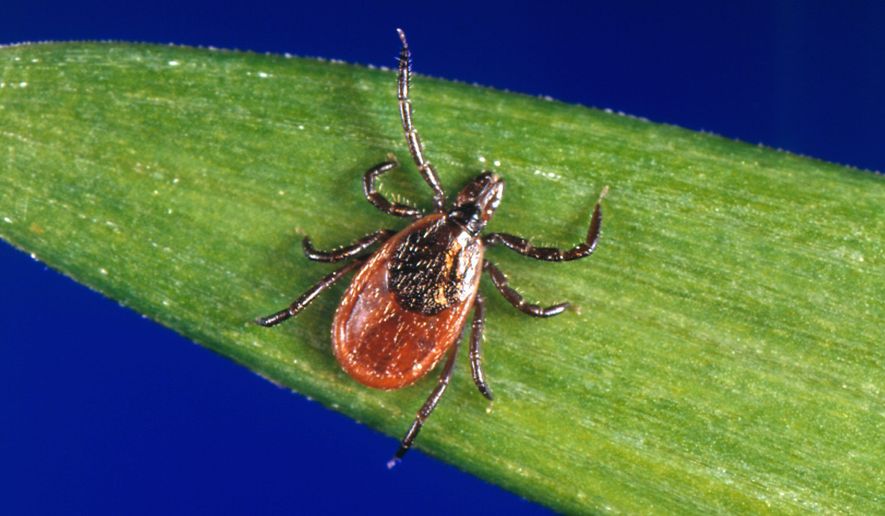Health officials in the Syracuse area of New York are warning about an increase in a rare tick-borne illness that can cause severe disease.
Dr. Indu Gupta, health commissioner of Onondaga County, on Thursday said six cases of anaplasmosis have been reported this year compared to three cases total in the previous five years. Anaplasmosis is primarily spread from the bites of infected ticks.
“In New York state, the disease is spread by the blacklegged tick (Ixodes scapularis), which is the same type of tick that typically spreads Lyme disease. If we are diligent in practicing the same prevention measures we’ve learned to prevent Lyme disease, we are protecting ourselves from other tick-borne diseases including anaplasmosis,” Dr. Gupta said in a statement.
Symptoms of anaplasmosis include fever, chills, muscle aches, nausea, vomiting and diarrhea and can start within one to two weeks after a bite by an infected tick. Anaplasmosis can cause severe illness if the person delays treatment or has other medical issues. Late-stage illness could lead to respiratory failure, organ failure, bleeding problems and even death, according to the Centers for Disease Control and Prevention.
People who are older or with weakened immune systems could be at risk for severe illness from anaplasmosis.
The health department recommends wearing shoes and long clothing, using insect repellents containing DEET, and treating clothing and outdoor gear with products containing 0.5% permethrin to prevent tick bites. It also advised checking for ticks after outdoor activities and removing them quickly with tweezers.
• Shen Wu Tan can be reached at stan@washingtontimes.com.




Please read our comment policy before commenting.